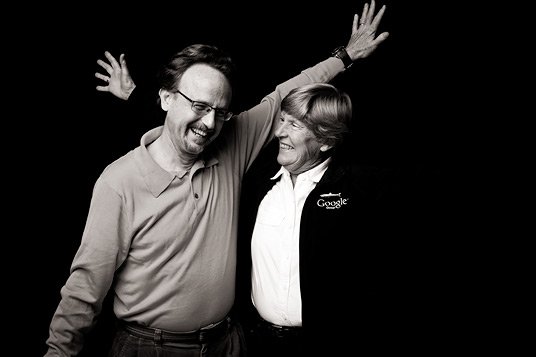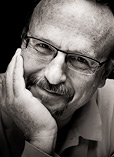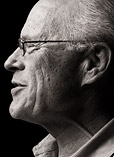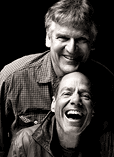
Dee Boersma & Kent Redford
I like people
THEMES: Society, Conservation | WORKSHOP: Synthesis
Biographies
Dee Boersma
Dee Boersma is the Wadsworth Endowed Chair in Conservation Science in the University of Washington's department of Biology. She has been at the University of Washington since 1974, initially as professor of Zoology and then as professor of Biology following the merger of the Zoology, Biology and Botany departments. She was Acting Chair of the Biology department from 2005 to 2006 and is an adjunct faculty member in the Women Studies department. Since 1982, she has directed the Magellanic Penguin Project at Punta Tombo, Argentina, in her role as a scientific fellow for the Wildlife Conservation Society. Since then, she has carried out research on Magellanic penguins in the South Atlantic, assessing their biological characteristics and the effects of human perturbations and policy changes on their survival.Conversations:
Workshops:
Kent Redford
Born in Taipei; raised by traveling foreign service parents; stunned by the social and biological setting of University of California-Santa Cruz; and frustrated by a PhD experience at Harvard University where he worked in Brazil on giant anteaters and termites, Kent then spent ten years as an academic at University of Florida where he learned the importance of interdisciplinary training of tropical graduate students and worked on subsistence hunting in tropical America. Deciding that he needed to try the applied world, Kent moved to The Nature Conservancy where he worked on protected area issues and broadscale conservation planning. For the last fourteen years he has been at the Wildlife Conservation Society working on a broad range of issues from human health and conservation to wildlife well-being.Conversations:
Workshops:
Transcript
Dee Boersma: So why have you spent so much of your life trying to save these animals of the world? Whether it's big cats or landscapes, you've spent a lot of time dong that.
Kent Redford: I have and I wonder to myself whether or not it's because I don't like people, and I've ended up believing that it's because I like people more than other people. That is, I like people more than other people like people. I wish to save these things so that others can have the opportunity to experience it.
I believe that we have failed to find a sustainable way of living on the 90 percent of the planet on which we live. I would be happy to turn over that last ten percent once people prove that they can live sustainably. But until they do, why give them the last ten percent, or 15 percent, when they've screwed up the 85 percent they had.


